These College Students Spent a Semester at Camphill For School Credit

Antioch College Students Reflect on Their Time at Camphill Village in Copake, NY
In fall 2020, three students joined Camphill Village in Copake, NY to compliment their studies at Antioch College in Ohio and make an impact as volunteers. Camphill has made an impact on them as well. Luisa Bieri, Assistant Professor of Cooperative Education at Antioch, shared that “our students have been glowing about their amazing experiences with Camphill!” Many Antioch students have come to Camphill over the years and we expect to welcome many more in years ahead, maintaining a long tradition of partnership that strengthens both communities.
Learn more about the Camphill volunteer experience
Antioch’s educational model combines campus-based courses with experiential learning in the field, including its notable Cooperative Education Program in which Antioch students spend several terms engaged in full-time work, research, or artistic production. For many Antioch students, time at Camphill has proved a deeply meaningful way to spend a term, allowing them to gain skills they can’t find in a classroom while also being welcomed into a dynamic, inclusive community.
Meet three Antioch student volunteers and learn about their time at Camphill:
Ike Wylie (he/him), Class of 2022
From the moment he was welcomed at Camphill Village Copake in Fall 2020, Ike Wylie could tell that “Camphill was not a regular community and did not try to be.” To him, Camphill is a place where “the people live together without necessarily a lot in common [except for] their service to each other.” This lifestyle, Ike says, was an opportunity to learn “what it means to share life in its sorrows and joys, and intimately, in a village of 200 people.”
During his time at Camphill, Ike worked on the estate, raking leaves, stacking wood, collecting compost, and tearing down old sheds. “We ride with the wind in our faces on the flatbeds of dump trucks,” Ike says, “we laugh together.”
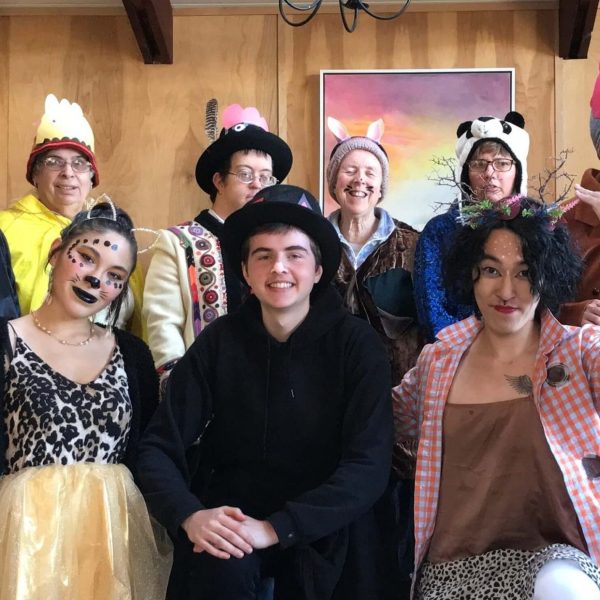
A big part of this way of life was the sharing of both chores and social time in the household: preparing smaller meals, cleaning, supporting personal hygiene, doing creative projects, caring for the kids after school… just spending quality time together.
``Everyone at Camphill knows that they’ve got it good, for each person has their part and purpose.”
“Camphill has led me in an experience that will stay fresh with me long after I leave,” Ike shares, and he knows that he’s not alone in this. As guests joined his household for dinner, he found that “there was a common story amongst the older, long-term volunteers. They came to Camphill at a young age, were spellbound, and stayed for life. I can understand this trajectory.”
Ike was amazed to meet people from all around the world at Camphill and to join them in doing a wide range of jobs and talents. “There are estate people, candlemakers, bakers, weavers, farmers, gardeners, and grocery clerks, [and then] there are readers, violin players, cyclists, and certified-eurythmy experts,” Ike says. “The village supports itself happily and eagerly as a well-oiled machine.”
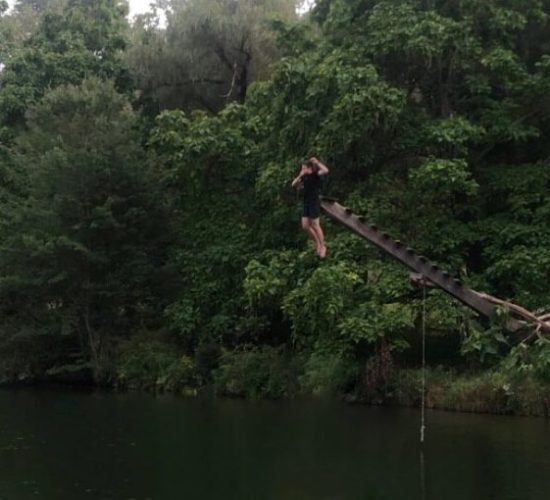
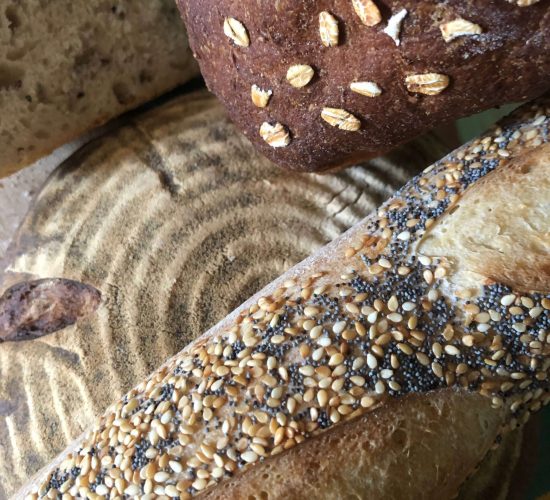
“Living with those who are differently abled was initially a learning curve,” Ike shares” I am no good measure of my ignorance before I came to Camphill, and continue to be blind to what I do not know, but I will say that as I have lived here I have felt a shift. Instead, I find the people here as different from me in fundamentally unimportant ways. I enjoy the presence of their personalities, we share and poke fun.”
In beautiful Copake, NY, Ike was amazed to find “the center of a movement in the middle of nowhere.” He thinks that everyone at Camphill “knows that they’ve got it good, for each person has their part and purpose.”
“People work hard to retain Camphill’s goodness,” Ike shares, “and its goodness retains its people. The majority of Camphill’s goodness is in its people.”
Delaney Schlesinger-Devlin (they/them), Class of 2022
When Delaney Schlesinger-Devlin arrived at Camphill Village, they were blown away by the spirit of teamwork and community. “Everyone participates and cares for each other in every way possible” they explain, “we find things that people are both able to do and also excel at doing.”
One of Delaney’s favorite things about Camphill is the mission “to live in balance with seasonal change.” Dipping fall leaves in beeswax is one of the seasonal activities that honors that mission, and Delaney was amazed to find that the trees from which they gathered red and yellow leaves “are the same trees that the Estate Workshop will harvest maple syrup from this winter.” Delaney shared that their house “dipped over 50 leaves to decorate our space for fall, and we only had one burnt finger!”
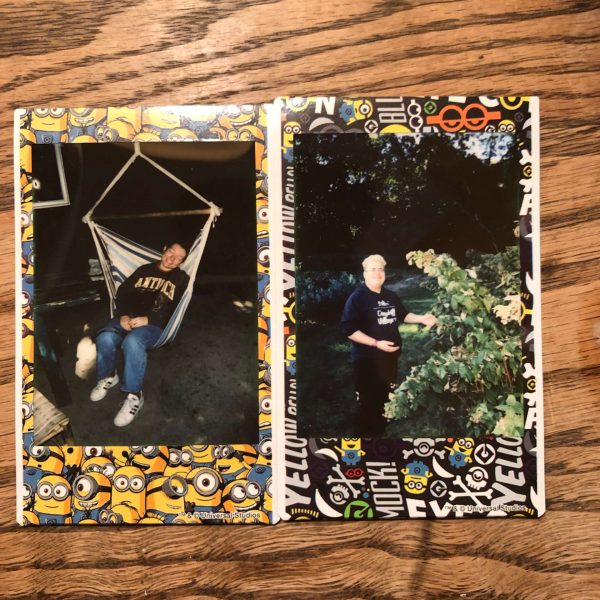
“Shared living at Camphill brings a new future into focus, a future that is about recognizing the potential of everyone and the benefits of a life lived with care and concern for others.”
Delaney’s jobs during their time at Camphill were in the Coffee Shop and the Turtle Tree Seed workshop. They found that the Coffee Shop was an especially meaningful place to work in 2020 because “some of the villagers here are not able to wear masks, so the Coffee Shop is a way for them to safely come to a coffee shop.” At Turtle Tree Seed, Delaney learned all about seed germination and varieties and was impressed by a villager coworker who “can name almost every type of tomato seed we have.”
With around 200 people living across the village, Delaney was glad to feel like there was room to spread out. Located on 600 acres of farmland and woods, Camphill provided Delaney the perfect balance between time in community and time in nature. What stood out to them most is the way that “shared living at Camphill brings a new future into focus, a future that is about recognizing the potential of everyone and the benefits of a life lived with care and concern for others.”
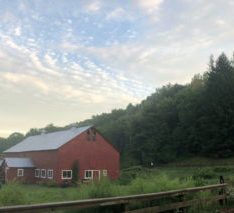
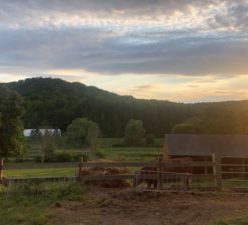
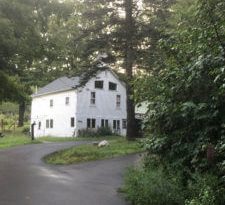
Asher Ruck (they/them), Class of 2022
After being embraced by the Camphill community in Copake, Asher shared that they “found a place where I can fit in and find fulfillment in my work and home life more than many of the settings I’ve found myself in before.” They were amazed by the way that the community’s values of “work, equality, and purpose for all people [were] exemplified in the ways people live and work” each and every day.
Each morning at Camphill, Asher cooked lunch for a house in the Village. Asher hadn’t done much cooking before their time at Camphill Village and was proud to walk away from their time there having gained this skill and bonded greatly with the two villagers who cooked alongside them.
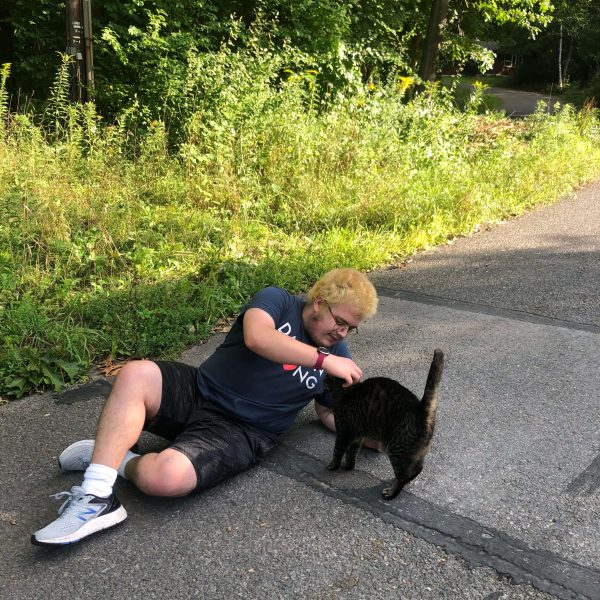
Asher’s favorite memory from their time in Copake was attending a Camphill wedding, which they found to be “exceedingly beautiful.” At the ceremony, Asher explains, “biographies of the bride and groom were presented, cheers and laughs were elicited from the audience, and leaves fell on all our heads.” Asher loved how excited the villagers were to see everybody all dressed up and found it especially lovely to watch the community working together to make sure that everybody got a piece of cake. On a rainy walk home after the wedding, Asher says, “it hit me that I was finally beginning to feel like a part of the village.”
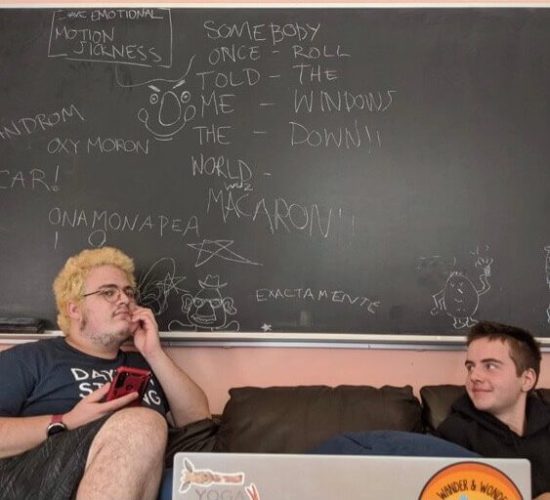
“It hit me that I was finally beginning to feel like a part of the village.”
Spending a semester at Camphill affirmed Asher’s sense of direction for the future. “I have always known I was interested in intentional communities” they share, “but now I am confident I would like to study how to create and operationalize community.” Asher hopes to visit more intentional communities and write about their experiences in order to teach others about the lessons they can take away from the communities. With their book, Asher hopes to “use education to benefit the material conditions of groups of people and to create a better sense of belonging and agency for others.”